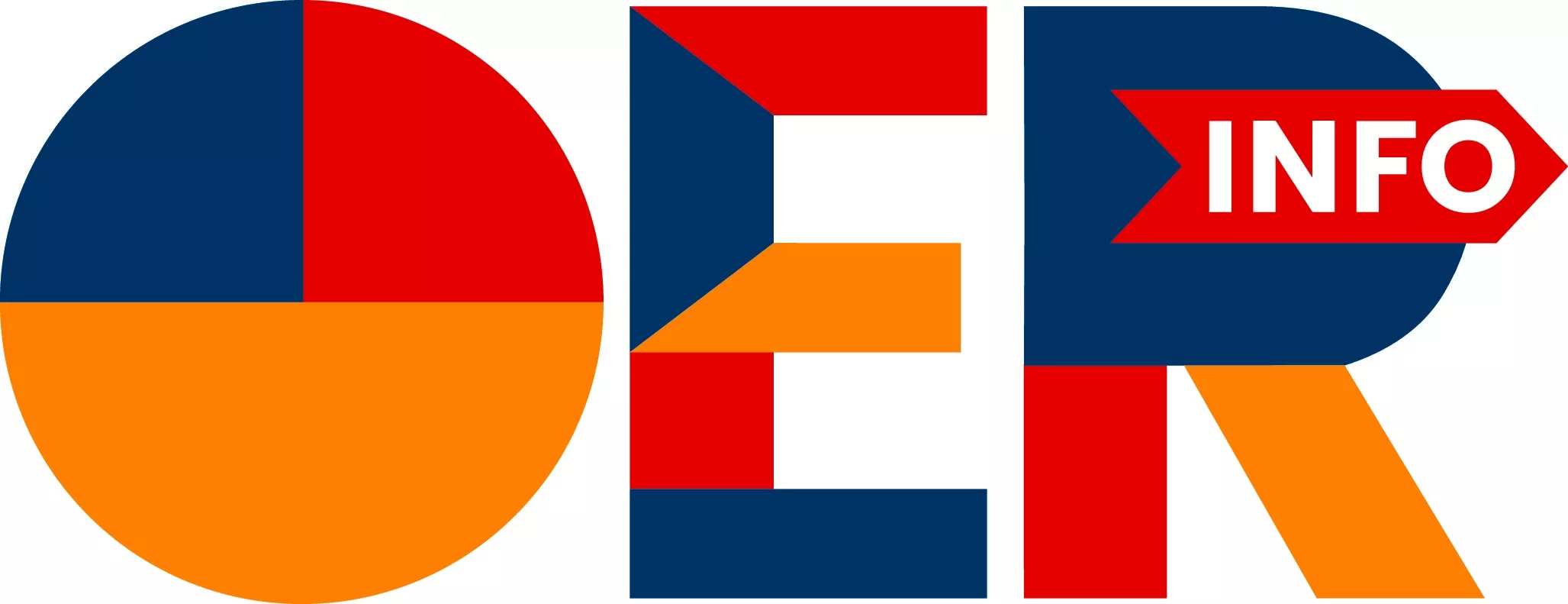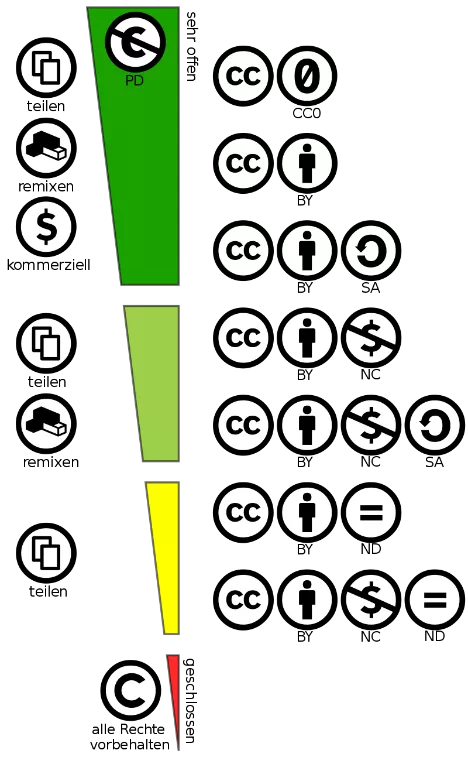Open educational resources in literacy and basic education
Reading time approximately 5 minutes – read, like, comment!
Original language: German
Literacy and basic education for adults have been the subject of greater public attention since, at the latest, the 2011 “LEO Level One Study”. The “National Decade for Literacy and Basic Education” (Literacy Decade) has been running since 2016. The project’s goal is to improve adults’ reading and writing skills as well as basic competencies such as numeracy or the use of digital technologies. To achieve this goal, a large quantity of high-quality learning resources are required. Open educational resources can make an important contribution in this field

What are OER?
Open educational resources (OER) have the advantage of being “free”, which means that anyone can access, adapt and distribute them. The first point is important to learners, while all the above aspects are highly relevant to teachers. Teachers need permission to distribute material, such as the use of a worksheet in a course, and also need permission to adapt material, for example to suit the abilities of participants.
However, OER are more than just worksheets. They refer to all kinds of resources, regardless of the type and the medium, which can be used for educational purposes (text, images, music, videos, games, ideas, instructions, digital or analogue techniques) and which are openly licensed. The licences used in this context are the Creative Commons licences, and open educational resources are labelled as CC Zero, CC BY or CC BY-SA (dark green in the adjacent graph). This is important, because as a rule resources without this label are not OER.
What do the individual licences mean?

Not all CC licences are open. The restrictions NC (no commercial use allowed) and ND (no derivative works allowed) limit re-use to such a degree that it no longer makes sense to speak of an open licence. If you as a teacher are sure that none of your professional activities can be classified as commercial, and if you have no wish to make changes to the resources, then you are also permitted to use licensed resources which include the ND and NC restrictions. However, due to a lack of legal clarity, the NC clause is considered problematic.
Image: Creative commons license spectrum von Shaddim, original CC license symbols by Creative Commons, translation into German JoeranDE, licence: CC BY 4.0. Retrievable at Wikimedia.
Which type of licence is right for my OER?
Platforms, projects and individual teachers who wish to make their literacy or basic education resources available would be recommended to release them under a CC licence. This offers legal security to others who re-use the material, as it clearly indicates whether and in what ways additional use is permitted. A well-meant remark on a homepage that “some” use of the material is possible may indicate an intention, but leaves many questions open.
Those who donate resources also need to consider what type of licence should be chosen. The problematic issue of the NC (non-commercial) restriction has already been mentioned. It is important to note that “commercial” does not mean the abuse of a licence. Teachers who work at private language schools work for a commercial institution. Teachers at adult education centres are often unsure whether their work is “commercial” or not, especially as adult education centres exist as different types of legal entity. Is it right that private schools which provide basic education or literacy courses are disadvantaged by the NC licence? On the other hand, adult education centres might avoid resources with an NC licence due to uncertainty. And what if a freelance teacher works in a “commercial context” in the morning and offers the same content on a “non-commercial” basis in the afternoon?
The ND restriction means that teachers are not allowed to adapt the material in any way. This can also be problematic. In order to deal with the heterogeneity of participants in any learning environment, the ability to differentiate within that environment is important. One way in which this might be done is by adapting learning resources to match participants’ abilities. ND licences restrict the ability to do this.
Where can you find OER for literacy and basic education?
Unfortunately, there is not a central platform. The following suggestions unfortunately only count for Germany, but you might find similar offers in your country. The OERhörnchen [DE] can be recommended for general OER-related research. It includes a user guide [DE]. The wb-web dossier can be used as an entry point for literacy and basic education. The dossier contains links to platforms and projects which offer OER in at least some areas. You can find OER for literacy in the vhs voluntary workers’ portal [DE]. You can contact the project by email at ehrenamtsportal@dvv-vhs.de if you would like to share your own materials as OER. Another way to release your own materials as OER is via the educational resources donation site. People involved in education will check, free of charge, whether resources which are protected by copyright are being inappropriately used or whether other legal conditions are being violated. Teachers at German adult education centres can upload their OER to the VHS cloud [DE]. The OERhörnchen can assist you in openly licensing your educational resources. You can find a user guide [DE] here.
If you are active in the fields of literacy or basic education and are aware of other OER sources, please share your knowledge here. We, and presumably many others, would be delighted.
The following link will also guide you to an example of OER in literacy in the form of a template which can help with reading practice.
About the author: Dr Magdalena Spaude is a researcher at the Deutsches Institut für Erwachsenenbildung - Leibniz-Zentrum für Lebenslanges Lernen e.V. (DIE).
Would you like know more about the challenges and opportunities of OER and further develop your knowledge and competencies? Also read the following articles:





